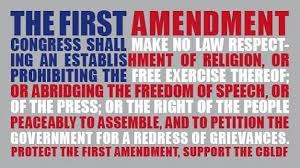The role of unbiased journalism has never been more important, nor more confusing. 
Just what is a “journalist”? When anyone can start a blog or report on events with cell phone images and Tweet-sized reports – we need consumers to know the difference. We must have news resources that do not interject personal opinion, who do view all sides of an issue and report professionally.
Informed consumers, and communities, come from quality reporting. In the article below Caroline Little, talks about the role the law plays in keeping content from being reused without permission. Caroline’s article is offered here verbatim, with no changes to her copy.
Ultimately journalism must be profitable so news organizations can spend money on smart reporters, topic experts, news photographers and news video. As marketers we must support the protection of the right of the news media to own their content.
This is a topic about accountability, credibility and the future of honest and fair reporting – something our companies and organizations depend on.
Strong Copyright Law supports journalism and informed communities
By Caroline Little, Newspaper Association of America, president & CEO
Every day, city hall reporters at local newspapers distill hours of city council meetings into cogent stories that inform readers about how their elected officials are spending their tax dollars. Sports reporters document the successes of the high school team. Investigative reporters dig through thousands of pages of documents to expose government corruption, waste or ineffectiveness.
This journalism plays a vital role in local communities and in our nation’s democracy. But it also costs money: newspapers continue to invest more than $5 billion a year in journalism, far more than any other medium in the United States. Newspapers deliver news and information when and where readers want it, in print, digital and mobile platforms.
To do that, we must have fair copyright laws to enable newspapers to receive fair compensation in support of this journalism.
This year, the House Judiciary Committee, the Commerce Department, the Copyright Office and others are looking at potential changes to the Copyright Act. The newspaper industry applauds these efforts to ensure that copyright law is best suited for the digital age. We hope that any changes to the Copyright Act will continue to ensure that content creators – including those who invest in journalism – receive fair compensation.
This continued protection is particularly important today because some companies exist solely to aggregate content from the websites of original publishers for the sole purpose of selling this content to business users at a considerable profit.
Newspapers’ concern in this area is not the personal use of newspaper-generated content but rather its use by businesses that benefit financially through the unlicensed monetization of that content. By taking newspaper content without paying for it, these companies undercut the fundamental economic model that supports journalism that is so important to our communities.
As an example of the importance of copyright protection, consider a case last year that was decided by a federal judge in New York. The case involved Meltwater, a for-profit service, which scraped Associated Press articles from the Internet and resold verbatim excerpts to subscribers.
The AP sued the news service for copyright infringement, and the court properly found that Meltwater’s customers viewed the service as a substitute for reading the original articles. The court found that the re-publication of these articles was not “fair use,” a defense that provides a limited exception from the general rule that content users must receive permission from copyright holders to use their content. This case demonstrates that the Copyright Act’s fair use test is flexible enough to allow courts to reach the right decision.
While targeted enforcement actions focusing on business ventures that take and resell our content may continue to be necessary, the newspaper industry is also determined to find business solutions rather than legal remedies. Ultimately, the best approach for fairly compensating newspapers and other publishers is through the licensing of news content for business purposes.
The most convenient way to request permission to copy and distribute material is by contacting the publisher of that content. In addition, clearinghouses exist, like Copyright Clearance Center and Burrelles Luce’s Compliance Article Program, which provide an easy way for business users of content to obtain redistribution rights.
Since our nation’s founding, newspapers have played a central role in sustaining a well-informed public and healthy democracy. We are confident that licensing arrangements and fair and strong copyright protection will ensure our ability to continue to play this role for centuries to come.
###
With sincere thanks to the Newspaper Association of America for sharing this editorial for blogger use.
